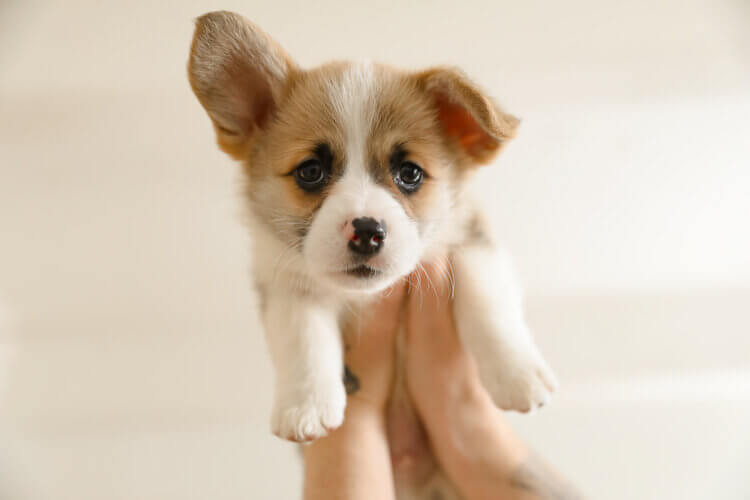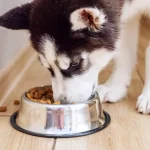Table of Contents
Introduction to Puppy Care
Bringing a puppy into your home is an exciting, joyous occasion. Puppies offer unconditional love, boundless energy, and affection. However, they also require time, patience, and consistent effort to grow into well-behaved adult dogs. Proper care during the first few months of their life is critical for their long-term health and happiness.
PuppyHeaven’s Comprehensive Puppy Care Guide is here to help you navigate every stage of puppyhood—from the first day at home to your puppy’s transition into adulthood. This guide provides essential tips on health, training, nutrition, grooming, and more. We’ve also compiled the best advice from experienced trainers and veterinarians to ensure you have all the knowledge to care for your new furry friend.
Choosing the Right Puppy
Before diving into puppy care, it’s important to start with choosing the right puppy for your lifestyle. Different dog breeds have different needs in terms of exercise, grooming, and behaviour. PuppyHeaven offers a vast database of dog breeds with detailed descriptions of their characteristics, making it easier for potential puppy parents to match their preferences with the right breed.
Some breeds are more active and require plenty of exercise, while others are more laid-back and can adapt to smaller living spaces. Whether you’re looking for a playful Labrador or a more relaxed Bulldog, selecting a breed that aligns with your activity level and living situation is crucial.
Bringing Your Puppy Home
The first few days in a new home can be overwhelming for a puppy. They are adjusting to a new environment, away from their littermates and familiar surroundings. It’s important to create a calm and secure space for your puppy to feel safe.
- Set Up a Puppy-Friendly Space: Before bringing your puppy home, ensure that you have everything they need, including:
- A comfy bed or crate
- Food and water bowls
- Toys for mental stimulation
- A designated potty area (whether indoors or outdoors)
- Prepare for the First Night: Puppies can feel anxious when separated from their littermates. On the first night, you may want to keep your puppy’s crate or bed near you so they can feel comforted by your presence. Gradually, as they become more accustomed to their new home, you can transition them to their permanent sleeping area.
- Establish a Routine: Puppies thrive on routine. A consistent daily schedule for feeding, potty breaks, and bedtime helps them feel secure and reduces anxiety. A structured routine also helps with potty training, as puppies need to go outside frequently.
Puppy Health Essentials
A puppy’s health is the foundation for a long, happy life. Ensuring your puppy receives proper veterinary care, vaccinations, and nutrition is key to their overall well-being. PuppyHeaven’s guide provides a comprehensive overview of puppy health essentials.
- Vaccinations and Vet Visits: Your puppy will need a series of vaccinations to protect them from common diseases. These vaccines should start at around 6 to 8 weeks of age and continue through their first year. Regular checkups with your veterinarian are also crucial to monitor your puppy’s growth and health.
- Parasite Control: Puppies are vulnerable to parasites such as fleas, ticks, and worms. Your vet will advise you on the best parasite prevention plan based on your puppy’s breed and lifestyle. Regular deworming is also recommended to keep your puppy healthy.
- Nutrition: A balanced, nutritious diet is essential for a growing puppy. Puppy food is specially formulated to meet the high energy and developmental needs of puppies. Always choose high-quality food recommended by your vet, and avoid feeding your puppy human food, as it may upset their stomach or harm their health.
- Spaying and Neutering: While spaying or neutering is not mandatory, it is often recommended for puppies, particularly when they reach 6 months of age. This procedure not only prevents unwanted litters but also has potential health benefits, such as reducing the risk of certain cancers.
Training Your Puppy
Training your puppy is a rewarding and necessary part of their development. Puppies are incredibly intelligent and eager to learn, but it’s important to start training early. PuppyHeaven offers a variety of training tips to help you raise a well-behaved dog.
- Housebreaking and Potty Training: Potty training is one of the first tasks for new puppy owners. The key to success is consistency, positive reinforcement, and patience. Take your puppy outside frequently—especially after eating, drinking, or waking up—and reward them when they go potty in the right spot. Crate training can also be an effective way to teach your puppy where to go.
- Basic Commands: Teaching your puppy basic commands like “sit,” “stay,” “come,” and “leave it” is essential for good behaviour. Start with simple commands and use positive reinforcement such as treats, praise, or toys when your puppy follows the command correctly.
- Socialisation: Early socialisation is crucial to your puppy’s development. Exposing them to different people, pets, and environments during their formative months helps them grow into well-adjusted adults. Puppy classes are a great way to introduce your puppy to new experiences in a safe and controlled environment.
- Dealing with Puppy Behaviours: Puppies often display behaviours such as chewing, biting, and jumping. While these actions are part of their natural development, they can become problematic if not addressed early. PuppyHeaven provides effective strategies for redirecting these behaviours, such as providing chew toys, using positive reinforcement, and redirecting their attention.
Grooming Your Puppy
Proper grooming is essential for your puppy’s hygiene and comfort. Regular grooming also provides an opportunity to check your puppy’s skin, ears, and teeth for any signs of health issues.
- Bathing: Puppies don’t need frequent baths, but it’s important to keep them clean. Bathing once every month or two is usually sufficient, unless your puppy gets particularly dirty. Always use a mild puppy-specific shampoo to protect their sensitive skin.
- Brushing: Depending on your puppy’s coat type, regular brushing may be necessary to prevent mats and tangles. Long-haired breeds often require more frequent brushing, while short-haired puppies need less maintenance. Brushing also helps distribute natural oils throughout their coat, promoting a healthy, shiny appearance.
- Nail Trimming: Keeping your puppy’s nails trimmed is essential to prevent them from becoming too long and causing discomfort or injury. Start by gently handling your puppy’s paws so they become accustomed to the process. Use proper dog nail clippers and trim their nails regularly.
- Ear and Teeth Care: Regularly check your puppy’s ears for any signs of infection, such as redness or a foul odour. Clean their ears with a damp cloth if necessary, but be gentle. Puppies can also develop dental issues, so start brushing their teeth early with a dog-safe toothbrush and toothpaste.
Exercise and Mental Stimulation
Puppies are full of energy and require plenty of exercise to stay healthy. Regular physical activity helps prevent obesity and keeps your puppy’s muscles and joints strong. Mental stimulation is equally important to keep your puppy’s brain active and engaged.
- Exercise: The amount of exercise your puppy needs depends on their breed and age. Generally, puppies require multiple play sessions and walks each day. Be mindful not to over-exercise your puppy, as their growing bones and joints are still developing.
- Interactive Toys: Puppies are curious creatures, and interactive toys can keep them entertained while providing mental stimulation. Puzzle toys, treat-dispensing toys, and chew toys are great options for keeping your puppy occupied and mentally engaged.
- Social Play: Playtime with other dogs can help your puppy develop good social skills and burn off excess energy. However, always supervise playtime to ensure that the interaction remains safe and positive.
Dealing with Common Puppy Health Issues
Even with the best care, puppies are still vulnerable to certain health problems.Click to read more about being aware of common puppy health issues and understanding the signs can help you address them quickly and effectively. Regular vet visits and proactive care are key in preventing many issues, but it’s still important to know what to look for.
1. Vomiting and Diarrhoea
Puppies are particularly susceptible to gastrointestinal issues, and it’s common for them to experience occasional bouts of vomiting or diarrhoea. This can be caused by a change in diet, eating something inappropriate, or even stress. While a single episode of vomiting or diarrhoea isn’t typically a cause for alarm, frequent episodes or severe symptoms should be checked by a vet.
If your puppy shows signs of dehydration, such as lethargy, sunken eyes, or dry gums, seek immediate veterinary attention. Hydration is critical to prevent further complications.
2. Fleas and Ticks
Fleas and ticks are common external parasites that can cause discomfort and transmit diseases. Even if you live in an area where these pests aren’t abundant, it’s still possible for your puppy to be exposed. Preventive measures, such as flea and tick treatments recommended by your vet, should be started early. Regularly check your puppy’s fur for any signs of fleas or ticks, particularly after outdoor activities.
Flea infestations can lead to itching, hair loss, and skin infections. In severe cases, fleas can also cause anaemia due to blood loss. If you find fleas or ticks on your puppy, consult your veterinarian about the best treatment options.
3. Ear Infections
Puppies with floppy ears are especially prone to ear infections due to the warmth and moisture that can accumulate inside the ear canal. Symptoms of an ear infection include shaking of the head, scratching at the ears, and a foul odour. If you notice any of these signs, it’s essential to take your puppy to the vet for an evaluation.
Regular ear cleaning and drying after baths or swimming can help prevent ear infections. Make sure to use a dog-safe ear cleaner, as some human products can be too harsh for your puppy’s sensitive skin.
4. Parvovirus
One of the most serious and contagious diseases that can affect puppies is parvovirus. It’s a viral infection that primarily attacks the gastrointestinal system and can lead to severe vomiting, diarrhoea, and dehydration. Puppies are particularly vulnerable before they complete their vaccination schedule.
Parvovirus is preventable through vaccinations, so ensure your puppy stays on track with their vaccination schedule as advised by your veterinarian. If you suspect your puppy may have contracted parvovirus, seek immediate veterinary attention as it requires prompt treatment to increase survival chances.
5. Kennel Cough
Kennel cough is a highly contagious respiratory infection caused by bacteria or viruses. It’s often seen in puppies that are exposed to other dogs in settings like boarding kennels or parks. Symptoms include a dry, honking cough, runny nose, and mild fever.
Although kennel cough is usually mild and resolves on its own, it can become more serious in puppies with weaker immune systems or other health conditions. In severe cases, your vet may recommend antibiotics or other treatments to help your puppy recover more quickly.
Mental and Emotional Development in Puppies
Puppies not only need physical care but also emotional and mental stimulation to thrive. Their emotional well-being is just as important as their physical health. Early emotional and mental development sets the stage for how your puppy will behave and interact with you and others throughout their life.
1. Building Trust
From the moment you bring your puppy home, it’s important to start building trust. Puppies are highly impressionable, and their experiences during the first few months of life shape their future personalities. Positive interactions, gentle handling, and lots of affection will help your puppy feel secure and form a strong bond with you.
Be mindful of your puppy’s needs and respond promptly to their cries, hunger, and discomfort. When puppies feel understood and cared for, they are more likely to grow into confident, well-adjusted adult dogs.
2. Socialising with People and Other Animals
Proper socialisation is essential for a well-rounded puppy. Exposing your puppy to a wide variety of people, animals, and environments while they are still young helps them develop good social skills. A well-socialised puppy is less likely to develop behavioural issues like aggression or anxiety as they grow older.
Socialisation should start as early as 7 to 8 weeks of age. Introduce your puppy to new people and pets gradually, and ensure that the experiences are positive. If your puppy shows signs of fear or anxiety, go slowly and never force interactions.
Enrolling your puppy in puppy kindergarten classes is a great way to safely expose them to other dogs and people. These classes also provide valuable training and socialisation opportunities in a controlled environment.
3. Preventing Separation Anxiety
Separation anxiety is a common issue for puppies that haven’t been properly trained to cope with being alone. It can lead to destructive behaviours, excessive barking, and house soiling when left alone. The key to preventing separation anxiety is gradually getting your puppy used to being by themselves.
Start with short separations, and slowly increase the amount of time your puppy spends alone. Provide plenty of toys and safe spaces to keep your puppy occupied while you’re away. Avoid making a big fuss when you leave or return home, as this can create anxiety.
If your puppy shows signs of distress when left alone, such as excessive barking or destructive behaviour, it may be helpful to consult a trainer or veterinarian for additional advice on managing separation anxiety.
Travelling with Your Puppy
Once your puppy is comfortable in their home environment, it’s time to introduce them to travel. Whether you’re heading to the vet, going on a road trip, or taking your puppy to the park, it’s important to make travel experiences enjoyable and stress-free for both you and your puppy.
1. Crate Training for Travel
Crate training is one of the most effective ways to ensure your puppy’s safety during travel. A properly sized crate provides a secure space for your puppy to relax and reduces distractions while driving. Make sure the crate is large enough for your puppy to stand, turn around, and lie down comfortably.
Introduce your puppy to the crate gradually, making it a positive experience by rewarding them with treats and praise when they enter. Once your puppy is comfortable with the crate, use it during car rides to help them associate travel with something safe and familiar.
2. Car Travel Tips
Travelling by car can be a fun and bonding experience for you and your puppy, but it’s important to prioritise safety. Always secure your puppy in a crate, pet seat belt, or pet car seat to prevent distractions while driving. Never leave your puppy unattended in a vehicle, as it can quickly become dangerously hot or cold.
Before embarking on a long journey, take your puppy for shorter car rides to help them get used to the motion. Bring along water, snacks, and a few of their favourite toys to keep them comfortable during the trip.
3. Travelling by Air
If you’re flying with your puppy, there are additional considerations. Some airlines allow small puppies to travel in the cabin with you, while others may require them to be in the cargo hold. Check with your airline for their pet travel policies and make sure your puppy’s crate meets their requirements.
Prepare for the journey by getting your puppy accustomed to the crate ahead of time, ensuring that they are familiar with it before the day of the flight. Consider visiting the vet for a health check-up and to get any necessary vaccinations for travel documentation.
Conclusion: Enjoying the Puppy Journey
Raising a puppy is a rewarding journey that brings joy, laughter, and fulfilment. While it requires commitment, patience, and understanding, the bond you’ll form with your puppy will be invaluable. By following PuppyHeaven’s comprehensive guide, you’ll have all the tools to raise a well-adjusted, happy puppy who will grow into a loyal companion for years to come.
Remember that every puppy is unique and will have their own personality, preferences, and quirks. Embrace the challenges and joys of puppyhood, and always prioritise your puppy’s physical and emotional well-being. With proper care, training, and love, you’ll provide your puppy with a wonderful start in life and create memories that will last a lifetime.





